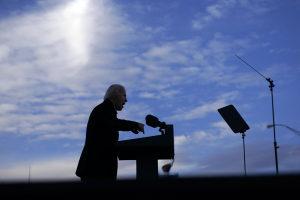“We need a reconciliation in the form of economic justice,” says Del. Marlon Amprey
BALTIMORE — Delegate Marlon Amprey (D-District 40) represents Baltimore City and says he’s been thinking about legislation like this since he was a kid.
“It started when I was asking my dad questions about how government system worked,” he says.
He’d learned about how taxes pay for certain services available to citizens – but was concerned that while everyone was required to pay into the system, his grandparents and great-grandparents didn’t get the benefits.
“Upon learning about our segregated past here in Maryland.. I asked my dad a simple question,” he recalls. “All the tax money that [my grandparents and great-grandparents] paid? They are still denied access to things that they were paying for?”
His dad’s answer was yes.
“It’s always been stuck in my heart,” he says.
This year, Delegate Amprey will introduce House Bill 159, also called the Economic Justice and Racial Reconciliation Act.
If passed, the legislature would be required to create a Commission to “study historical laws and systems in place in the State from the Reconstruction Era through the enactment of the federal Civil Rights Act of 1964” and how those laws and systems negatively impacted Black Marylanders economically.
The legislation would then task the Commission to come up with a number, the amount of monetary reparations owed to the Black communities across the state.
Commission members would then need to determine where that money would come from and how it would be distributed.
“I’ve always believed that we cannot have social justice until we have economic justice,” says Delegate Amprey.
Achieving this economic justice, for this Baltimore City delegate, requires going back and understanding the disruption in generational wealth for Black Marylanders.
“I think about Baltimore, and West Baltimore, particularly where my family is from, I think about how bustling of an area once was, when my grandparents moved here, there were a myriad of black businesses, black hotels, black banks, Pennsylvania Avenue was bustling place of entertainment,” he explains.

He continues, “the problem is, they’ve never gotten retribution or anything back for all the years that are paying into a system that didn’t get any benefits from. So we literally know that, you know, black males are paying into a system that was literally paying for other communities to thrive while they had to just survive. And that’s just not fair. It’s not economically fair. It’s not morally fair.”
He hopes that this Commission will help to correct these issues.




